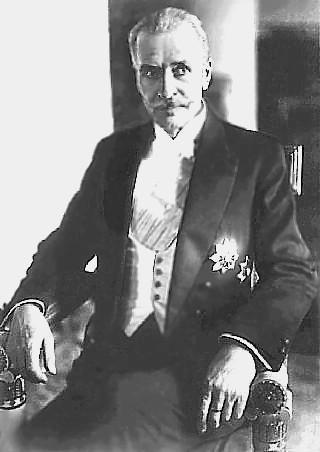- Ignacy Mościcki
Infobox Officeholder
name = Ignacy Mościcki

imagesize =
small
caption =
order =President of the Republic of Poland
3rd President of the Second Polish Republic
term_start =June 4 ,1926
term_end =September 30 ,1939
vicepresident =
viceprimeminister =
deputy =
president =
primeminister =Kazimierz Bartel ,Józef Piłsudski ,Kazimierz Bartel ,Kazimierz Świtalski ,Kazimierz Bartel ,Walery Sławek ,Józef Piłsudski ,Walery Sławek ,Aleksander Prystor ,Janusz Jędrzejewicz ,Leon Kozłowski ,Walery Sławek ,Marian Zyndram-Kościałkowski ,Felicjan Sławoj Składkowski
predecessor =Stanisław Wojciechowski
successor =Władysław Raczkiewicz (President of the Polish Republic in Exile)
birth_date = birth date|1867|12|1
birth_place =Mierzanowo ,Congress Poland (nowPoland )
death_date = death date and age|1946|10|2|1867|12|1
death_place =Versoix ,Switzerland
constituency =
party = (until 1892, Proletariat)
spouse = Maria Mościcka, née Dobrzańska
profession =Chemist
religion =
footnotes =Ignacy Mościcki (
December 1 ,1867 –October 2 ,1946 ) was a Polishpolitician andchemist , President of Poland (1926-1939). As of 2008 he remained the longest-serving President in country, spending 13 years in office (August Zaleski was President for 25 years in exile).Life
Ignacy Mościcki was born
December 1 ,1867 , inMierzanowo , a small village nearCiechanów ,Poland . After completing school inWarsaw , he studiedchemistry at theRiga Polytechnicum . There he joined the Polish underground leftist organization,Proletariat .On graduating he returned to
Warsaw , but was threatened by theTsarist secret police with life imprisonment inSiberia and was forced to emigrate in 1892 toLondon . In 1896 he was offered an assistantship at the University inFribourg (Switzerland). There he patented a method for cheap industrial production ofnitric acid . In 1912 he moved toLwów , where he accepted the Chair of Physical Chemistry and Technical Electrochemistry at theLwów Polytechnic . In 1925 he was electedrector of the Polytechnic, but soon moved toWarsaw to continue his research at theWarsaw Polytechnic .After
Józef Piłsudski 'sMay coup d'etat , onJune 1 ,1926 , Mościcki — an erstwhile associate of Piłsudski's in thePolish Socialist Party — was electedpresident ofPoland by theNational Assembly , on Piłsudski's recommendation (after Piłsudski himself refused the office). As president, Mościcki was highly subservient to Piłsudski, never openly showing dissent to any aspect of the marshal's leadership. After the death of Piłsudski in 1935, Piłsudski's followers divided themselves into three main factions: those supporting Mościcki as Piłsudski's successor, those supporting generalEdward Rydz-Śmigły and those supporting prime ministerWalery Sławek . With a view to eliminating Sławek from the game, Mościcki concuded a power-sharing agreement with Rydz-Śmigły, which saw Sławek marginalised as a serious political player by the end of the year. As a result of this agreement, Rydz-Śmigły was to become the de facto leader of Poland, until the outbreak of the war, whilst Mościcki remained influential through continuing in the highest office of president. Mościcki was the leading moderate figure of the regime, referred to at the time as the "regime of the colonels", owing to the strong presence of army officers in the Polish government. He opposed many of the nationalistic excesses of the more right-wing, Rydz-Śmigły, but their pact remained more or less intact. Mościcki remained president until September 1939, when he was interned inRomania and was forced byFrance to resign his office. He transferred his office toWładysław Raczkiewicz , after his first choice for his successor was rejected by the government of France. In December 1939 he was released and allowed to move toSwitzerland , where he remained throughWorld War II . He died at his home nearGeneva onOctober 2 ,1946 .ee also
*
Poland
* Invasion of Poland
*Mościce
*4-year plan
* List of PolesReferences
*
*
*
Wikimedia Foundation. 2010.
